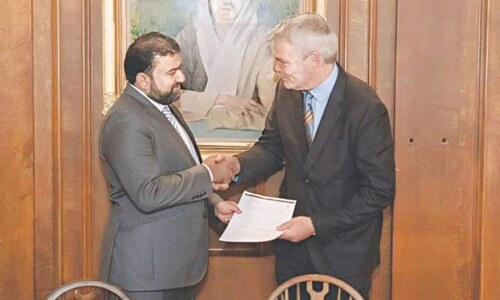GILGIT: The first-ever Gilgit-Baltistan Youth Policy 2024, recently approved by the cabinet, is aimed at employment generation, youth empowerment and prevention of suicide tendencies in the region.
The policy has been prepared according to local dynamics, challenges faced by local youth to ensure equitable access to public resources, addressing disparities related to gender, geography, socio-economic status, and disabilities among youth, according to United Nations Population Fund (UNFPA) consultant Altaf Hussain.
He told Dawn that the UNFPA and GB youth affairs department drafted the policy with the consultation of stakeholders.
Aligned with national priorities and international commitments, GB Youth Policy 2024 has adopted a forward-looking approach by recognising the potential of the region’s youth and the evolving opportunities likely to arise. This policy is designed with consideration of the current governance structure, development financing mechanism, and socio-economic context of GB.
The policy has been formulated through an extensive data-gathering process that involved various segments of the youth population, sector organisations, experts and authorities. It underlines the need to establish an effective mechanism for collaboration with development partners, research institutes, and donors for initiating programmes and addressing gaps in youth development.
Endowment Fund
Recognising financial constraints in the federal grant, the GB government, in collaboration with the corporate sector and development partners, will establish a Youth Development Endowment Fund under this policy to support education, entrepreneurship, and youth-led innovations.
Additionally, the policy encourages the establishment of a youth-centric healthcare system to address the physical, mental, and emotional well-being of young people. It highlights the need to increase the frequency of sports competitions, cultural festivals, political engagement, and dedicated youth spaces to celebrate diversity and promote a shared identity among GB youth.
In GB, the government serves as the largest formal employer, providing jobs to around 55,000 individuals, yet the large corporations capable of generating jobs are absent.
Youth in both the public and private sectors require capacity building, and women face limited employment prospects due to poor transportation facilities and safety concerns.
GB faces educational challenges, marked by a low literacy rate of 53 per cent, notably lower at 42pc for females, resulting in a considerable gender gap in education access, particularly in remote areas.
Published in Dawn, June 3rd, 2024

































